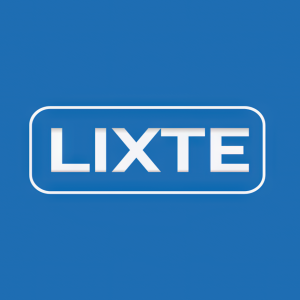Scientific Journal Reports Findings that Show LIXTE’s Lead Clinical Compound, LB-100, Increases Recognition of Colon Cancer Cells by the Immune System
Rhea-AI Summary
LIXTE Biotechnology Holdings announced new pre-clinical data published in EMBO Reports showing that its lead compound, LB-100, can potentially enhance immunotherapy effectiveness in colon cancer. LB-100 has been found to disrupt mRNA splicing in cancer cells, creating neo-antigens that boost immune system recognition. This mechanism could help turn immunologically 'cold' tumors 'hot,' making them more susceptible to immunotherapy. The study, conducted by researchers at the Netherlands Cancer Institute, adds to existing data supporting LB-100's role in sensitizing cancer cells to immune checkpoint blockade. This discovery is expected to expand clinical trial efforts, particularly in lung and ovarian cancer, and could significantly increase the number of colon cancer patients responding to immunotherapy.
Positive
- LB-100 has shown potential to enhance immunotherapy effectiveness by creating neo-antigens.
- The study was conducted by a reputable team at the Netherlands Cancer Institute.
- LB-100's mechanism may turn 'cold' tumors 'hot,' increasing immune system recognition.
- The research supports ongoing clinical trials in lung and ovarian cancer.
Negative
- The findings are pre-clinical and need further validation in human trials.
- Any potential benefits are yet to be proven in real-world clinical settings.
- The research focuses on colon cancer, necessitating additional studies to confirm efficacy in other cancers.
News Market Reaction
On the day this news was published, LIXT gained 1.39%, reflecting a mild positive market reaction.
Data tracked by StockTitan Argus on the day of publication.
LB-100 Generates Neo-Antigens in Cancer Cells that are Presented to the Immune System
by Disrupting the Process of RNA Splicing
PASADENA, CA, June 06, 2024 (GLOBE NEWSWIRE) -- LIXTE Biotechnology Holdings, Inc. (“LIXTE” or the “Company”) (Nasdaq: LIXT and LIXTW), a clinical stage pharmaceutical company, today announced online publication of new pre-clinical data in the journal EMBO Reports, showing that its lead compound, LB-100, can turn immunologically “cold” tumors “hot,” potentially enhancing the benefit of immunotherapy.
In a paper titled, “The Phosphatase Inhibitor LB-100 Creates Neoantigens in Colon Cancer Cells through Perturbation of mRNA Splicing,” LIXTE’s collaborators from the Netherlands Cancer Institute have demonstrated that treatment of cancer cells with LB-100 disrupts the normal processing of the mRNA that encodes proteins, thereby generating neo-antigens that are presented to the host immune system. This new mechanism adds to several previous discoveries showing that LB-100 sensitizes cancer cells to immune checkpoint blockade.
Bas van der Baan, LIXTE’s Chief Executive Officer, said, “This new research further supports our ongoing clinical trials in lung and ovarian cancer in which LB-100 is combined with checkpoint immunotherapy. The bioactivity of LB-100 shown in this new study turns the large group of immunologically cold microsatellite stable colon cancer cells into tumors that are recognized by the immune system. This development has the potential to significantly expand the number of colon cancer patients who respond to immunotherapy. We are looking at additional ways to test this concept clinically in the near future.”
The current publication is a peer-reviewed version of a preprint that was previously made available in July 2023 to bioRxiv.org, the preprint server for biology, operated by Cold Spring Harbor Laboratory, a research and education institution. In the currently published manuscript, the authors provide direct evidence that LB-100 generates neo-antigens that are presented in the context of MHC class I antigens to the immune system.
The team of scientists reporting these findings was headed by Professor René Bernards at the Netherlands Cancer Institute and Oncode Institute, Amsterdam. Professor Bernards is a leader in the field of molecular carcinogenesis and is a member of the Board of Directors of LIXTE.
About LIXTE Biotechnology Holdings, Inc.
LIXTE Biotechnology Holdings, Inc. is a clinical-stage pharmaceutical company focused on new targets for cancer drug development and developing and commercializing cancer therapies. LIXTE has demonstrated that its first-in-class lead clinical PP2A inhibitor, LB-100, is well-tolerated in cancer patients at doses associated with anti-cancer activity. Based on extensive published preclinical data (see www.lixte.com), LB-100 has the potential to significantly enhance chemotherapies and immunotherapies and improve outcomes for patients with cancer.
LIXTE’s lead compound, LB-100, is part of a pioneering effort in an entirely new field of cancer biology – activation lethality – that is advancing a new treatment paradigm. LIXTE's new approach is covered by a comprehensive patent portfolio. Proof-of-concept clinical trials are currently in progress for colon, small cell lung and sarcoma cancers. Additional information about LIXTE can be found at www.lixte.com.
Forward-Looking Statement Disclaimer
This announcement contains certain forward-looking statements within the meaning of Section 27A of the Securities Act of 1933, and Section 21E of the Securities Exchange Act of 1934. For example, statements regarding the Company's financial position, business strategy and other plans and objectives for future operations, and assumptions and predictions about future activities, including the continuing development of proprietary compounds, the planning, funding, coordination and potential results of clinical trials, the patent and legal costs to protect and maintain the Company's intellectual property worldwide, and the Company’s ability to obtain and maintain compliance with Nasdaq’s continued listing requirements, are all forward-looking statements. These statements are generally accompanied by words such as "intend," anticipate," "believe," "estimate," "potential(ly)," "continue," "forecast," "predict," "plan," "may," "will," "could," "would," "should," "expect" or the negative of such terms or other comparable terminology.
The Company believes that the assumptions and expectations reflected in such forward-looking statements are reasonable, based on information available to it on the date hereof, but the Company cannot provide assurances that these assumptions and expectations will prove to have been correct or that the Company will take any action that the Company may presently be planning. However, these forward-looking statements are inherently subject to known and unknown risks and uncertainties. Actual results or experience may differ materially from those expected or anticipated in the forward-looking statements. Factors that could cause or contribute to such differences include, but are not limited to, regulatory policies, available cash resources, research results, competition from other similar businesses, and market and general economic factors.
Readers are urged to read the risk factors set forth in the Company’s filings with the United States Securities and Exchange Commission at https://www.sec.gov. The Company disclaims any intention or obligation to update or revise any forward-looking statements, whether as a result of new information, future events or otherwise.
For more information about LIXTE, Contact: info@lixte.com
General Phone: (631) 830-7092; Investor Phone: (888) 289-5533
or
PondelWilkinson Inc. Investor Relations pwinvestor@pondel.com
Roger Pondel: (310) 279-5965; Laurie Berman: (310) 279-5962








